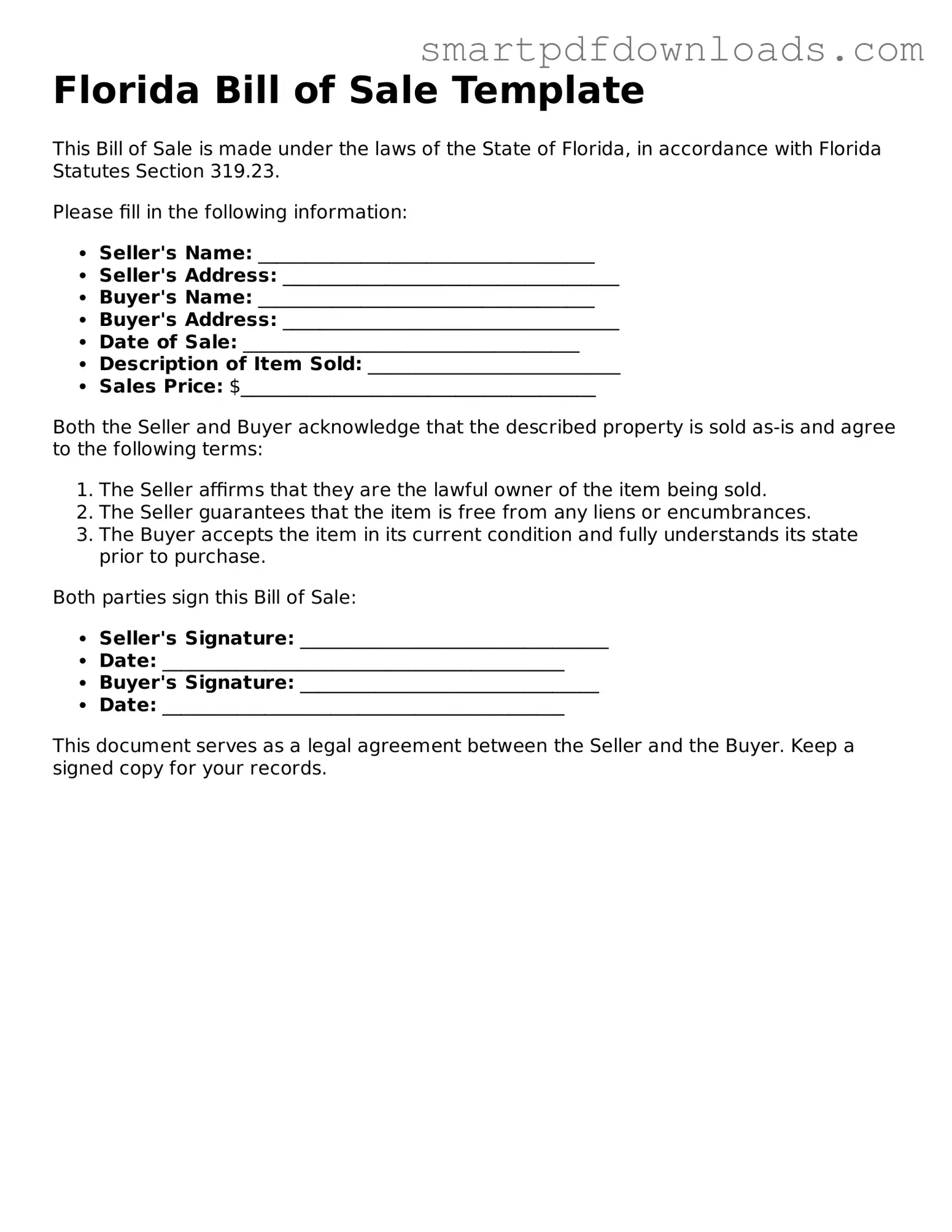Legal Bill of Sale Form for the State of Florida
A Florida Bill of Sale form is a legal document that records the transfer of ownership of personal property from one person to another. This form serves as proof of the transaction and outlines details such as the buyer, seller, and description of the item sold. Understanding how to properly use this form is essential for both parties involved in the sale.
Edit Bill of Sale Online

Legal Bill of Sale Form for the State of Florida
Edit Bill of Sale Online

Edit Bill of Sale Online
or
⇓ PDF File
Finish the form and move on
Edit Bill of Sale online fast, without printing.